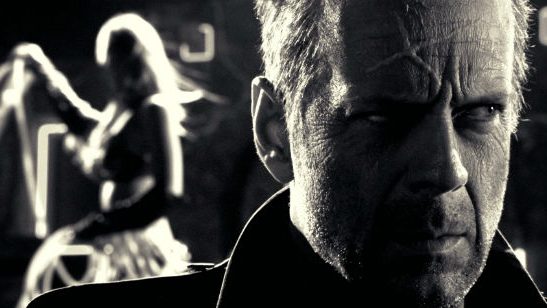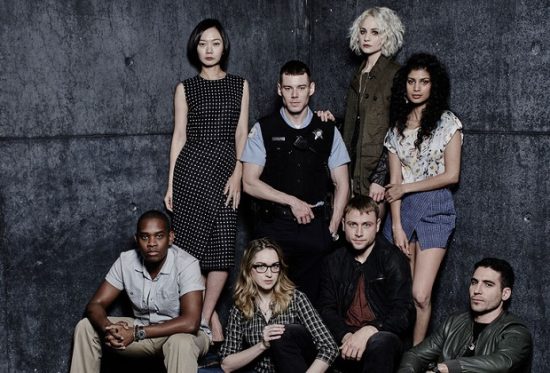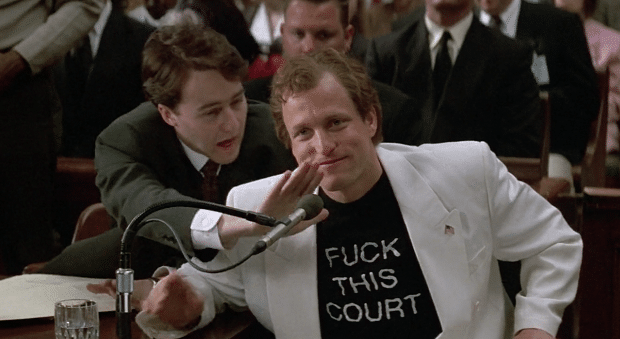The other day, I had what I feel I can best describe as a uniquely millennial moment. I was watching Baz Lurhmann’s Romeo & Juliet for the first time in many years, and it reached the scene in which Dash Mihok’s Benvolio quizzes Leonardo DiCaprio’s Romeo about the sadness that lengthens his hours. Romeo remarks that he loves a woman, to which Benvolio rather sneeringly replies, “I aimed so near when I supposed you loved.” Immediately I recalled studying the play as a teenager, and that line seeming fine as a droll witticism at the time; but hearing it today in 2017, I was not unreasonably struck by how homophobic it came off. A nanosecond later, this thought gave way to, “oh shit, Shakespeare was a homophobe;” and a fraction of a nanosecond after that, “does this mean it’s not okay to like Shakespeare anymore?”
For myself, I rapidly rejected this as a small-minded reduction. However, there’s not a doubt in my mind that many others could watch that scene today and latch onto the notion that Shakespeare is homophobic – and, by extension, so is Mihok for delivering the line, Lurhmann for directing it, and DiCaprio and everyone else involved in the film for being complicit in the promotion of homophobia. This would inevitably extend to every telling of Romeo & Juliet before and since. And so with a wave of a hand, the legacy of countless figures – chief among them, the single most influential writer in the history of the western world – would be dismissed as bigoted poison, and therefore of no cultural merit whatsoever.
In my humble opinion, this – as I should hope my tone makes clear – would be an absolutely absurd position to take. However, I see this kind of mindset at work with increasing regularity of late, and frequently among people whom I would generally regard kindred spirits.
Let there be no mistake here: we live in deeply troubled times, and one would have to be a fool not to recognise that. Pre-social media, we might have said that not a day goes by without some horrific news story about terrorism, murder, rape, racism, sexism, political corruption and/or police brutality; yet, in the age of Twitter and Facebook, it seems we can’t go a minute without more such incidents coming to our attention. It strikes me (not that I can claim to have done any qualitative research on the matter, nor am I aware of any studies to this effect) that the sharing of such news, within my own typically film-oriented social media circle at least, has increased massively in the past year or so: i.e., since Brexit and Trump, sources of anxiety which, as a lifelong liberal, I absolutely understand. It’s an entirely natural impulse: injustice prompts emotion – sorrow, anger, and (buzz word) outrage – and social media arguably exists as much to share feelings as information. It makes sense that the best way to defeat injustice is to bring it to light, so we share posts, we retweet, we add our voice to the growing chorus of disapproval.
None of this, so far as I can see, is in itself unhealthy; but then, there is of course the problem of the (God, I hate that I’m using this phrase) ‘fake news’ stories that frequently pop up from all sides; not to mention the question of to what extent sharing such stories and getting into related online arguments is really serving a higher purpose, or simply giving participants a way to feel important for a little while. These, however, are massive questions warranting vast tomes of debate which I very much doubt I’m to fit to tackle, when in my case all it really boils down to is missing the days when social media was just people nattering about films and sharing cat gifs.
The real concern I’m trying to address here is that, in the midst of all this turmoil, one would hope that the prevailing urge would be to emphasise the common ground we all share, rather than go to pains to accentuate our differences, and demand the ejection of those whose worldviews we deem hateful and intolerant. This tendency, seemingly rooted in that same injustice outrage impulse, may once again be well-intended, but it strikes me as massively counter-productive to essentially seek out ways to divide us further when we’re already so heavily divided.
Bringing this back to film and fandom (that’s my principle arena as a writer after all, and the primary focus of this site), this ties into a problem I touched on not long ago in my review of Mel Gibson’s Hacksaw Ridge: negotiating the relationship between art and artist, particularly when the artist in question has publicly shamed themselves the way Gibson has. A Gibson-esque furore seems to be igniting at present over filmmaker Ana Lily Amirpour, over charges of racism. Similarly, Gal Gadot’s status as a veteran of the Israel Defence Forces and her professed support for her home country’s military has for some tarnished the success of Wonder Woman. Many fans of the Guardians of the Galaxy movies are shocked when they learn that Chris Pratt is a conservative Christian and a hunting enthusiast. Then of course, there’s the ongoing controversy surrounding those old hands Roman Polanski and Woody Allen. We could go on, and on, and on.
 Cases such as these invariably result in countless declarations of “I will never watch another [so-and-so] movie again.” I’ve been there. Sin City was one of my favourite movies of the 2000s, and Frank Miller one of my favourite figures in comic books, but when it came to light what a right-leaning Islamophobe he was I struggled to appreciate his work in the same way. Yet this comes back to my initial point about Shakespeare: just because we part ways with an artist on one – or even numerous – issues, should this by extension invalidate their entire body of work? Do we not run the risk of massively depriving ourselves of potentially interesting and rewarding material if we take this position?
Cases such as these invariably result in countless declarations of “I will never watch another [so-and-so] movie again.” I’ve been there. Sin City was one of my favourite movies of the 2000s, and Frank Miller one of my favourite figures in comic books, but when it came to light what a right-leaning Islamophobe he was I struggled to appreciate his work in the same way. Yet this comes back to my initial point about Shakespeare: just because we part ways with an artist on one – or even numerous – issues, should this by extension invalidate their entire body of work? Do we not run the risk of massively depriving ourselves of potentially interesting and rewarding material if we take this position?
This, I think, is a particularly pertinent point when it comes to horror and cult film fandom. This is an arena which has always been about confronting that which is regarded as taboo, and as a result the decades have seen it suffer heavily at the hands of censors, scapegoated for any number of societal ills – and in every case, the primary defence against these charges is freedom of speech, freedom of expression, freedom of choice. All as it should be. Of course, the thing about all these freedoms is, if they’re worth anything at all, they must apply across the board. There isn’t some small print that stipulates freedom of speech can only apply to those we agree with. It’s for everyone, or it’s for no one – and it strikes me that we used to have no problem understanding this. Do any of us honestly think that Professor Martin Barker and the other academics who spoke out against the banning of the video nasties did so because the films in question were all timeless masterpieces? Surely anyone who’s sat through more than a few of the titles blacklisted by the 1984 Video Recordings Act can agree that, when all’s said and done, most of them were absolute shit. It was the principle of the matter. Remember what Alan Isaacman told the jury in defence of Larry Flynt, as immortalised by Edward Norton in The People Vs Larry Flynt (yeah, now the screenshot above makes sense): “I am not trying to convince you that you should like what Larry Flynt does. I don’t like what Larry Flynt does. But what I do like is that I live in a country where you and I can make that decision for ourselves… but there is a price for that freedom, which is that sometimes we have to tolerate things we don’t necessarily like.” (Watch that whole great speech here. It doesn’t contain the screenshot above, but what the hell.)
Let’s face facts: if we were to base our tastes in movies, music, literature, art, or anything based on whether or not we agreed with everything its creator ever did or said, our shelves would be pretty damn bare. For the sake of focus, let’s first consider music. Like any rational adult I’m sickened by the idea of grown men having sex with underage girls, but I’m not throwing out my Led Zeppelin, Iggy Pop or David Bowie CDs (and I’ve no doubt there are many more recording artists guilty of that in my collection). John Lennon was a wife-beater, but he also wrote countless songs that I grew up with, that shaped who I am today. Morrissey can’t open his mouth without reams of simple-minded shit gushing out, but his voice and his lyrics comforted me through difficult days of adolescence.
Arnie, Sly and Bruce Willis might have supported Reagan and the Bushes and promoted a jingoist agenda with their alpha male action movies, but I’ll still watch them any day of the week. Roald Dahl was by all accounts an extremely racist, sexist and all-around hateful bigot of a man, but his books still resonate with me from childhood, and I delight in sharing them with my own children today. Bill Hicks changed stand-up comedy and changed my life, even if now and then his jokes were homophobic and sexist. Steve Ditko was a staunchly conservative, hippy-hating objectivist, but his work resonated enough with my liberal self that I’ve got some of his art tattooed. Once again: we could go on, and on, and on.
 As a fan, one of my biggest disappointments of the year thus far (aside from the painfully misguided Alien: Covenant) has been the cancellation of the Wachowskis’ Netflix series Sense8. I can appreciate why it got the axe – it was reportedly expensive to make, it’s often hard to follow and all over the place tonally, and apparently it just didn’t draw a big enough audience – but think it’s a damn shame that it didn’t get to carry on, not only because it’s leaving the story unresolved, but also because the overall tone and message of the series is something I think we really need right now. For the benefit of the uninitiated, Sense8 centres on eight complete strangers from all over the world – distinct in gender, ethnicity, sexuality – who are brought together by a psychic link which enables them to directly experience one another’s lives. The series serves to underline that, when all’s said and done, there is a common humanity connecting us all, and if we can just focus on that and put the rest of the bullshit to one side, life can be so much better for all of us.
As a fan, one of my biggest disappointments of the year thus far (aside from the painfully misguided Alien: Covenant) has been the cancellation of the Wachowskis’ Netflix series Sense8. I can appreciate why it got the axe – it was reportedly expensive to make, it’s often hard to follow and all over the place tonally, and apparently it just didn’t draw a big enough audience – but think it’s a damn shame that it didn’t get to carry on, not only because it’s leaving the story unresolved, but also because the overall tone and message of the series is something I think we really need right now. For the benefit of the uninitiated, Sense8 centres on eight complete strangers from all over the world – distinct in gender, ethnicity, sexuality – who are brought together by a psychic link which enables them to directly experience one another’s lives. The series serves to underline that, when all’s said and done, there is a common humanity connecting us all, and if we can just focus on that and put the rest of the bullshit to one side, life can be so much better for all of us.
No, this isn’t always easy, and yes, there will doubtless be some instances when we find it impossible to forgive and forget. But perhaps, as Minnie Driver put it at the end of Grosse Pointe Blank (blimey, I’m all about the 90s movie quotes today), we need to forget about forgiving and just accept. We’ve all got some skeletons in our closets, and we’re never going to see eye-to-eye on all things. After all, if we did we’d have a lot less to talk about.
